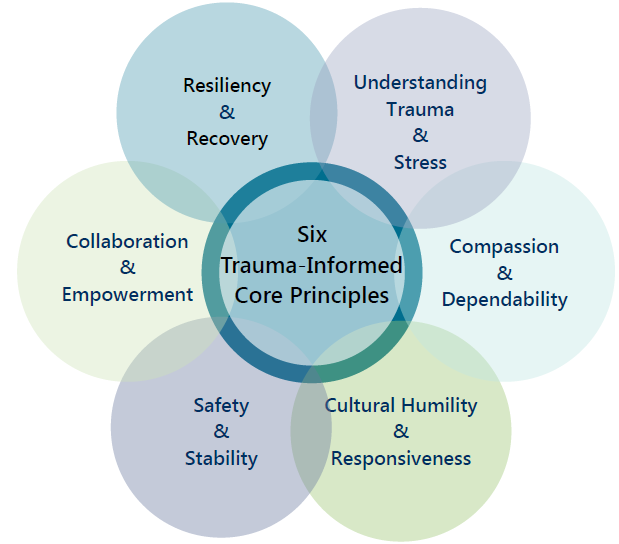
The Haven works with guests using trauma-informed care
Homelessness is a traumatic experience. People experiencing homelessness are under constant stress, not knowing where they will sleep at night or perhaps where their next meal will come from. They are often subject to dehumanizing and dangerous environments and expected to follow rules, which often seem to be inconsistently applied, to gain access to help using limited resources.
An overwhelming percentage of people experiencing homelessness have also been exposed to trauma throughout their lifetimes in the form of physical, sexual and psychological abuse, neglect, community violence, poverty, and limited access to care of all forms. The cumulative impact of trauma often makes it difficult for people experiencing homelessness to cope with life’s obstacles. They can feel powerless. There are high incidences of substance use, physical health challenges, and untreated mental health.
All of this suggests that solving the issue of chronic homelessness also requires addressing the underlying trauma that is present in people’s lives through “trauma-informed care” within homeless service programs. What is trauma-informed care? At its core, it “recognizes and responds to clients’ previous trauma, approaches clients through a strengths-based lens, and provides clients with safety, respect, and choice.”¹
At the Haven, Service Coordinator Amy Beston notes that “all of our guests have experienced some sort of trauma in their lives.” Amy oversees the Haven’s Trauma-Informed Workplace Committee that is “looking to see that we all have a shared understanding of trauma, how trauma can impact the organization, and make sure our policies or practices don’t retraumatize guests.”
According to Amy, this work starts with the basics: making sure “we have physical space that makes people feel safe—spaces that aren’t cramped or cluttered, with lighting that feels calming. We also want to ensure we’re really predictable in how we operate and that we’re honest and upfront about what we can do and what we can’t do.”
“A lot of systems are set up to promote helplessness, disempowerment, and disenfranchisement,” she continues. “We want to create an environment where people can be safe and heal. We believe that everyone is in charge of their own lives. We work on not enabling people but helping them help themselves. It’s a lot of big things but also very nuanced work.”
To help our guests and clients who have experienced homelessness, we try to establish clear roles and boundaries for predictability and collaborative decision-making. Privacy, confidentiality, and mutual respect are built into our values and practices, as is respect for cultural differences and diversity. The importance of choice is emphasized to help people rebuild control over their lives. The Haven also adopts strength-based approaches rather than deficit-oriented ones so that people can see their own strengths and use those to build coping skills.
The Haven strives to do the very best for guests and visitors by committing to ongoing training for staff about trauma-informed care. “We want to make sure we are all knowledgeable and that it’s imbedded in our own culture. Trauma-informed care is a journey, not a destination.”
¹Meghan Resler, MSW. “Facing the Facts: Trauma-Informed Practices in Homeless Intervention Services.” Family & Children’s Trust Fund of Virginia, 2017.


